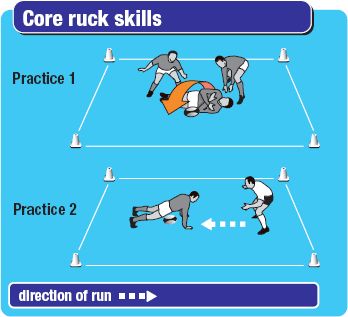
The Wales national rugby league team was among the greatest in the country during the second decade of the twentieth century. They won four Grand Slams in the 1970s, and dominated the northern hemisphere during the same period. They failed to reach the quarterfinals in the World Cup in 1991 and 1995. The Welsh rugby team today is also one the top teams in the world and seems destined for greater success.
Since 2011, the Welsh have dominated the northern part of the hemisphere. Their winless streak against the southern hemisphere has been ongoing since 2011. They have won 14 consecutive matches since March 2018, and are currently ranked number one in the world in the men's World Rugby Rankings.
They are also considered one of the greatest teams of all-time. They dominated the Northern Hemisphere in the late 20th century and experienced a second golden age in the 1970s. They were considered to be the greatest rugby national team ever.

J. P. R. Williams was the greatest player of Wales, and he was inducted into The World Rugby Hall of Fame. He is also a member in the Welsh rugby team. Mervyn Davis, Gareth Edwards and Barry John are just a few of his great achievements.
In 1987, Wales took part in the inaugural Rugby World Cup. They won four matches in the tournament. They hosted the 2005 Grand Slam. They have won all of the pool matches at the 2019 Rugby World Cup. They reached the semi-finals in the tournament in 2011. However, they were beaten by Australia and placed fourth in the tournament.
They reached the quarterfinals at the World Cup in 2010 after winning the Six Nations Championship. But they lost to New Zealand at the bronze final. Samoa beat them in the first match and knocked them out.
Wales were also the first team to win three consecutive Triple Crowns, and they reached the top of the World Rugby Rankings in August. They defeated England by a late penalty from long range in 2005. They lost to New Zealand in 2011, and finished fourth at the tournament. They won their pool matches and reached the quarterfinals. They beat Ireland in 2014. They were also in semifinals of 2015 World Cup. However, they did not reach the semifinals.

The Wales national rugby club has played against teams from other countries, such as Argentina and France, England, New Zealand. They are blessed with a wealth of talent and are poised for more success. They were ranked eighth worldwide as of November 2021. They are also highly valued and many experts believe they would win the tournament in the 1970s.
Wales was unable to match their opponents after the second World Wars. Their performance in Home Nations Championships improved in the second half of the 20th century. The team remained the same for two matches in 1931. Also, they participated in the Red Cross charity game against England in 1940.
FAQ
Which extreme sport is most dangerous?
It's snowboarding, because you balance on top a board while falling from a mountain at high speeds. If you fall the wrong way, you could end up in a grave situation.
What year did extreme sports become popularized?
Extreme sports are gaining popularity rapidly over the last ten years. However, there has been little research into why this is happening. This report examines the evidence regarding extreme sports' rise.
We also examine how extreme sports have become more popular since the 1990s.
We discovered that extreme sports had become too common in many countries. We noticed a lot of growth in the United States and Canada, Australia, New Zealand South Africa, South Africa and Europe.
We also discovered that extreme sporting activities are not very popular in some countries, like Brazil, China India, India, Russia, Russia, and Brazil.
What companies are most likely not to sponsor extreme sport?
Companies that sponsor extreme sports events, such as BMX racing, skateboarding, snowboard competitions, etc., are typically large corporations with large advertising budgets. They also tend to be very active within the community in which they operate. Coca-Cola, for example, sponsors many local sporting events as well as other activities across North America. Coca-Cola also supports youth camps and programs at the local, national, and international levels. In addition, Coke sponsors the annual "Coca-Cola Rock 'N' Roll Marathon" in New York City. This event attracts approximately 100,000 runners from all over the world.
What are some of the benefits of extreme sporting?
There are many health benefits to extreme sports participation. Here are a few examples:
-
Exercise is good for your health. You burn calories when you exercise. You also lose fat by exercising. So you look better.
-
Extreme sports teach you self-confidence. Many people find that they feel good about themselves after they participate in an extreme sport.
-
Extreme sports can be fun. There's nothing like feeling free and having lots of energy.
-
Extreme sports offer adventure. What could be better than doing something adventurous? You will never know what you'll find.
-
Extreme sports can be dangerous. You'll always be safe no matter what sport you choose.
-
Extreme sports may be dangerous. But extreme sports are generally safe when done correctly.
-
Extreme sports offer relaxation. Doing something you love is the best way to relax.
-
Extreme sports are good for character building. You develop courage, discipline, and perseverance as you gain confidence through extreme sports. These are vital for daily life.
-
Extreme sports help you become stronger. Most extreme sports require physical activity. This increases your strength and endurance.
-
Extreme sports promote fitness. Fitness is important for everyone. It improves your quality-of-life.
-
Extreme Sports offer a wonderful form of recreation. You can spend quality time with family and friends by participating in extreme sports.
What skills will I need to do extreme sports?
You must practice each day to become proficient in extreme sports.
Learning new moves and tricks is part of practicing. This will allow you to improve your performance.
You must also master basic safety rules before trying anything new.
Protective gear, such as helmets, should be worn at all times. You must keep in the sight of others.
A spotter is essential for any stunt. During your stunt, you will need a spotter to keep an eye on you.
Statistics
- Overall participation has grown by more than 60% since 1998 - from 5.9 million in 1998 to 9.6 million in 2004 Artificial Wall Climbing. (momsteam.com)
- Boxing— 90% of boxers suffer brain damage over their careers, and this is not surprising in the least, considering that they are throwing punches at each other's heads. (rosenfeldinjurylawyers.com)
- Nearly 40% of all mountain bikers have at least graduated from college. (momsteam.com)
- Nearly 30% of all boardsailors live in the South, and more than 55% of all boardsailors live in cities with a population of more than two million people (momsteam.com)
- Landscaping and grounds-keeping— according to government labor statistics, about 18 out of 100,000 workers in the landscaping industry are killed on the job each year. (rosenfeldinjurylawyers.com)
External Links
How To
How can you learn parkour skills
Parkour, a form of free running, is where people run across obstacles such as walls and buildings. It's a very popular sport, with millions participating around the world. There are many different types of parkour techniques, which include freestyle, wall climbing, obstacle course, urban exploration, rescue, freerunning, urban combat, and others.
Fitness is any activity that increases your physical fitness and overall health. This could include going to the gym, exercising cardio, or simply walking. Parkour is considered to be a sport as it requires the athletes to use their body strength.
Here are some tips for parkour beginners:
-
Choose a place with no stairs or places that could cause injury. Avoid hills, choose flat ground and climb trees if possible.
-
You should wear shoes that are made from leather and rubber. If you aren't sure which shoe is best for you, you can try all of them and find the ones that feel right. The right shoes can make or break a parkour session.
-
Keep hydrated during practice sessions by bringing water bottles and snacks.
-
Warm up before you start a parkour class. This means warming up your muscles before you jump into the action. Begin slow, then increase the intensity to ensure that your muscles are well-prepared.
-
Don't put too much emphasis on your arms or legs when you jump. Instead, concentrate on your core muscles and back muscles to help you get past obstacles.
-
Do not overdo it. Take breaks whenever you need to. This will allow your body to recuperate from the exercise without getting hurt.
-
When you practice parkour, it is important to listen to music. Music can help you relax and focus better.
-
To prevent injury, stretch your muscles after each session.
-
Do not forget to clean up after your self, especially if you are doing so in public. You won't endanger another person by doing this.
-
Keep track of your progress and keep a record of it in a notebook. This will help you remember your strengths, and your weaknesses.
-
Remember, parkour is intended to be fun. Enjoy the journey and don't let fear of falling stop you from enjoying it. Do not be afraid to fall. Get up and keep going.
-
Every day, learn new techniques and tricks.
-
Eat healthy food. A high protein diet can help you build muscle mass faster.
-
Find a mentor. Mentors are usually able to show you how you can do certain moves. They also provide advice about how you can improve your skills.
-
Ask questions! It's a joy to help fellow enthusiasts learn new things. Ask!
-
Practice makes perfect. Train whenever you can.
-
Have fun
-
Last but not less, remain safe!